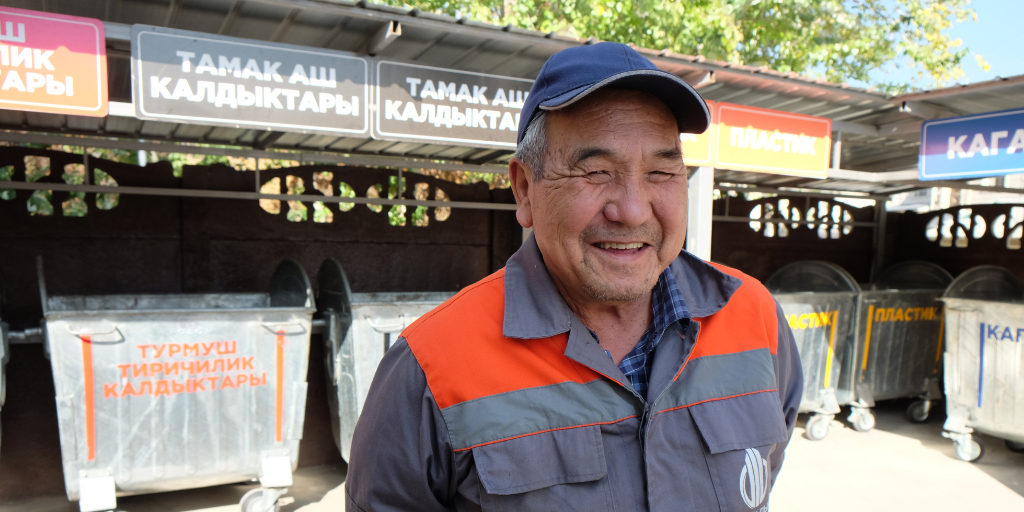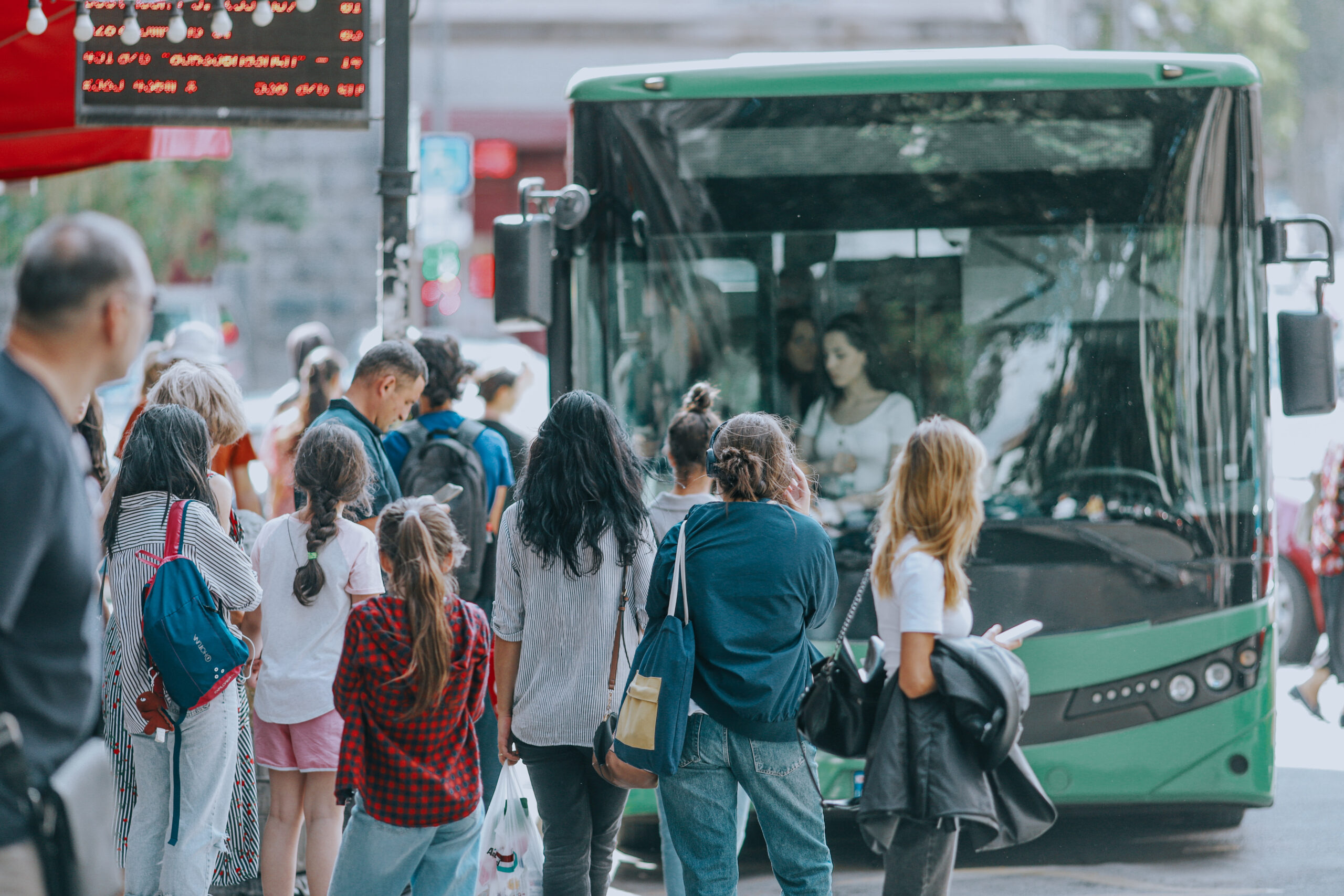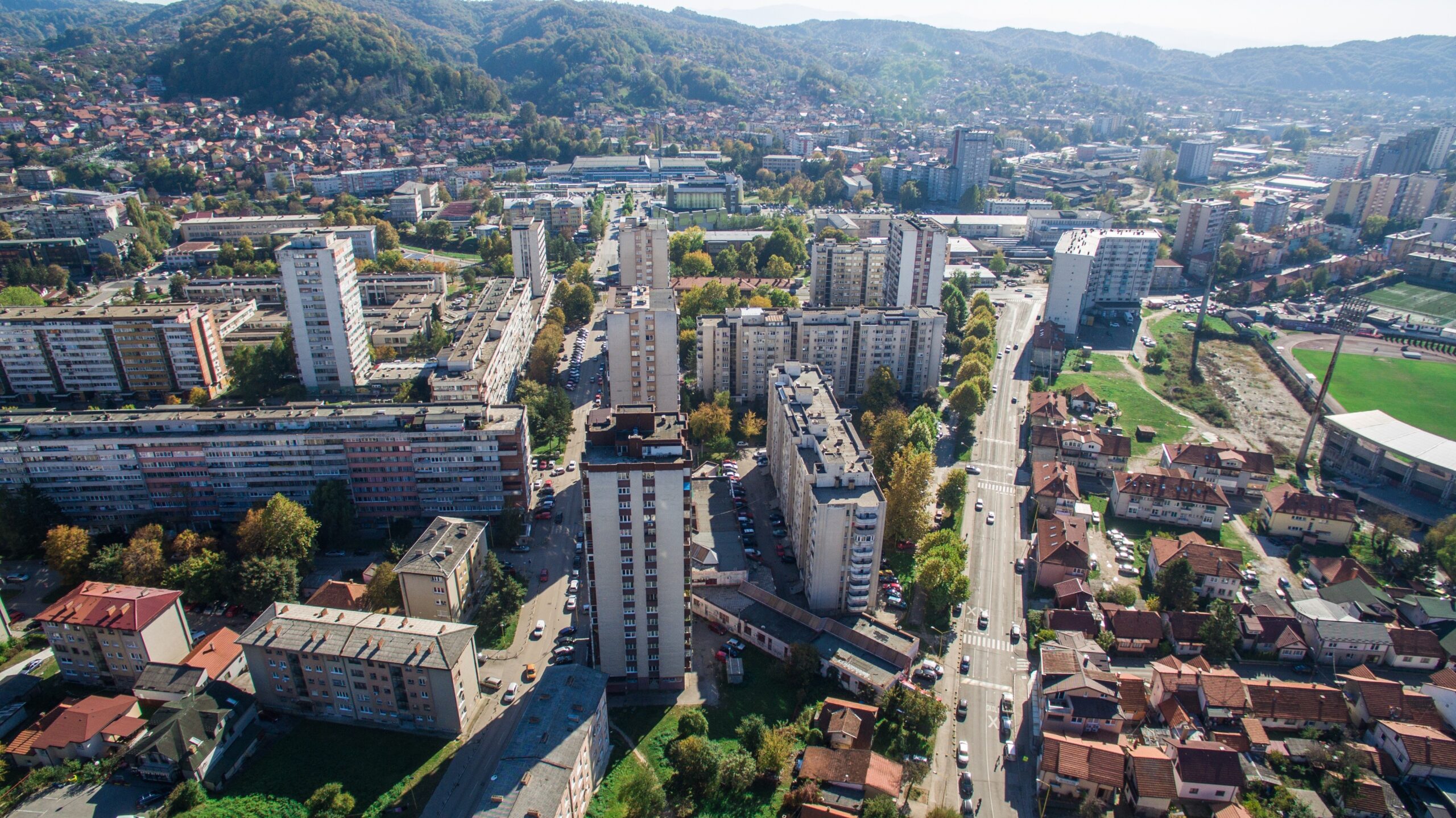As home to more than half the world’s population, cities are racing to adapt to climate change and reduce their greenhouse gas emissions. Supporting these efforts, international financial institutions are spending billions to help cities tackle their environmental problems and stem the climate crisis.
However, there are many obstacles to ensuring effective and transformative climate action in cities. All too often, poor planning, a lack of consideration for what people can afford, and piecemeal approaches prevent the ambitious objectives of these investments from being realised. In addition, climate-friendly solutions can easily be implemented in ways that bring limited benefits to urban residents and leave vulnerable groups worse off.
When investing in cities, international financial institutions can set an example by making sure their climate adaptation and mitigation projects put people first. We advocate for cities that are not only green and sustainable, but also more accessible, just and liveable.
IN FOCUS
Our recommendations for the EBRD’s new Sustainable Infrastructure Strategy
We recently sent our recommendations to the EBRD ahead of the release of its new Sustainable Infrastructure Strategy. Drawing from our previous experiences with EBRD investments in solid waste, urban transport and highway infrastructure, we’ve highlighted important issues for the EBRD’s strategy to address. Our recommendations are designed to help the EBRD make sure its projects are green, inclusive, well-governed, and financially sustainable.

Waste management and vulnerable groups
Over the past six years, we have been monitoring a controversial EBRD-funded solid waste management project in Belgrade that led to the involuntary resettlement of 17 Roma families living and working on the landfill site. The housing provided to the families was inadequate and their livelihoods were lost. At this point they turned to the A11 Initiative—a Serbian economic and social rights organisation—for help.
Since 2021, we’ve been advising A11 in a mediation process with local authorities and the EBRD client Beo Cista Energija. Facilitated by the EBRD’s Independent Project Accountability Mechanism (IPAM), we worked together to resolve the families’ complaints. In 2023, an agreement between the parties was finally reached, marking an important milestone in the case. We were pleased to see improved living conditions and new homes for the families affected. We continue to monitor progress on the agreed action plan, including the development of livelihood restoration solutions for vulnerable people whose jobs are to extract recyclables from waste.
Green, accessible and safe urban transport
In 2018, Tbilisi’s city authorities announced plans to prioritise public transport in the Georgian capital, with generous support from the EBRD and the Asian Development Bank. One of the city’s flagship reforms – a new bus network –– was seen as crucial for improving the efficiency of public transport in Georgia’s car-choked capital. The initiative was also expected to promote social and economic justice by improving mobility for public transport users, particularly women, students and low earners.
But five years on, car ownership shows no signs of slowing down, public transport services remain unreliable, and chronic congestion continues to impact air quality. Together with Tbilisi City Hall, international development banks are responsible for ensuring the success of these reforms. We urge them to listen to the concerns of Tbilisi residents and reflect them in the design and implementation of their public transport plans.

Green City Action Plans: How to get involved
As part of its Green Cities programme, the EBRD will spend over EUR 5 billion on climate action in cities in central and eastern Europe, Central Asia and the Middle East. A sizeable portion of this funding will be allocated to the Green City Action Plans (GCAPs), which aim to help cities deal with environmental issues and adapt to the climate crisis.
But for the GCAPs to be effective, the residents of these cities must have a say in how the money is spent. Their voices can play a vital role in helping cities become more resilient to the effects of the climate crisis.

PODCAST
VIDEOS
New investments aim to make cities greener. But can they also make them more liveable
The EBRD Annual Meeting from the perspective of Central Asia’s activists
Addressing gender-based violence on public transport: Lessons from the Western Balkans and South Caucasus
Latest news
Sofia’s burned lesson: Why the Western Balkans must ditch waste incineration
Blog entry | 25 November, 2025While Western Balkan governments scramble to solve their energy and waste crises by turning to incineration, a clear lesson is emerging from the EU: burning waste is a dead end.
Read moreBishkek residents seek mediation to restore trolleybus service
Press release | 19 August, 2025Residents of Bishkek have asked the European Bank for Reconstruction and Development (EBRD)’s Independent Project Accountability Mechanism (IPAM) to facilitate dialogue with urban authorities over concerns about the city’s trolleybus services.
Read moreEurope’s big trash-burning experiment has become a dirty headache
Bankwatch in the media | 27 July, 2025“Many of these installation plans would turn out to be obsolete,” says Anelia Stefanova, energy transformation area leader for CEE Bankwatch, since EU countries are expected to meet waste reduction and recycling targets enforced by EU laws.
Read moreRelated publications
From cost to value: How EU funds can boost biowaste circularity in central and eastern Europe from 2027
Report | 11 November, 2025 | Download PDFBiowaste, the largest component of municipal waste, is the second-biggest source of methane – a gas 80 times more potent than carbon dioxide over 20 years.
EIB urban transport projects in Ukraine: Lessons from Ternopil and Lutsk
Briefing | 17 October, 2025 | Download PDFIn recent years, the EIB has provided significant financial support aimed at modernising Ukraine’s urban transport systems. However, implementation challenges and major delays have stalled progress.
Rethinking urban mobility: Why green vehicles are no fix for broken transport systems
Issue paper | 26 May, 2025 | Download PDFThe EBRD’s new Infrastructure Sector Strategy represents a significant step towards sustainable urban transport investments. However, it remains to be seen whether the implementation of the strategy will strike the much-needed balance between infrastructure investments and policy actions.
